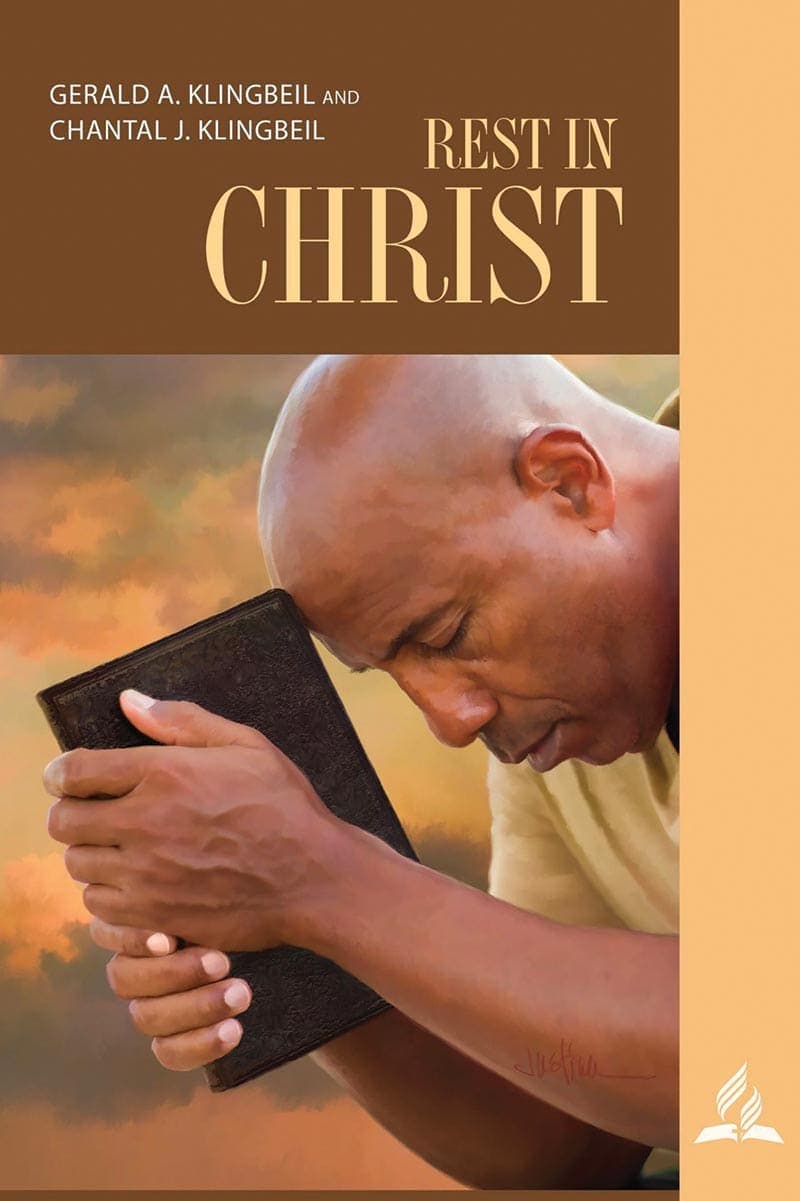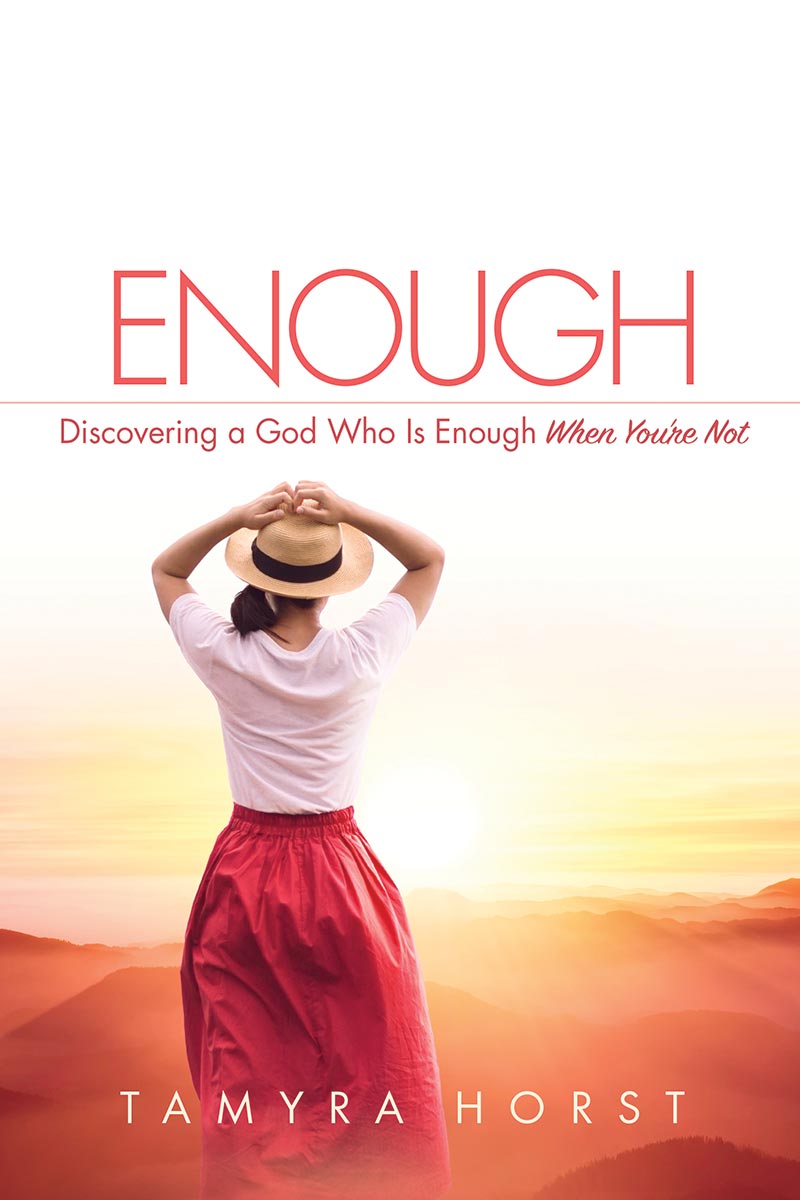
 Rest in Christ
Rest in ChristWe can’t really understand our need of rest until we realize how busy we are. That’s the logical starting point of the authors of this volume. Our constant busyness not only leads to premature death, but it also cuts us off from God’s original design of connectedness with each other and ourselves.
The authors highlight the human inclination to rebellion leading to restlessness by looking at the book of Numbers, which as a theme includes a call to guard against presumption, carefully consider our words, and allow the Holy Spirit not only to remove things from our lives that would hinder us, but to plant in us what will strengthen us as a new creation.
Chapter 3 deals with the foundational idea of how restlessness is tied to misunderstanding our own identity. When we discover it, we discover the life-altering implications of who we are in relationship to God.
As we recognize our worth, rest becomes the gift that we can access by coming and surrendering to God. It’s an invitation that presupposes a relationship, based on the correct understanding of our identity. This rest offered to us can transform suffering of dysfunctional families by recognizing that dysfunction is not an inescapable destiny, but rather a reality that can be transformed. These effects expand beyond the immediate context of ourselves and our immediate families; they also extend to our communities and environment. Rest and its life-altering repercussions are fleshed out in a logical way in this companion volume to the Adult Sabbath School Bible Study Guide.
The authors touch on issues that we often don’t dare to touch on, or we feel uncomfortable to address as faith communities. It’s too easy to interpret rest as something that results from correctly observing the appropriate allotted time slot that the Bible calls holy. There is much to highlight in this companion volume, including the necessity to understand that our relationship to God is not that of a slave relating to a master, but that of a friend relating to a friend. This could be developed even further as we understand the intimate relationship and identity of children.
Biblical rest also calls us to look beyond the often negative connotations of caring for the environment within a political or partisan context. Rather, it correctly frames it as stewardship of our Father’s creation. This type of “rest” will help us overcome the division in “us” versus “them,” for we cannot live in a place of rest if we are constantly warring against others who are “different” from us.
The book’s organization and logic are easy to follow; the volume is valuable beyond the specific use of a “companion volume” to the study guide. The authors base their arguments on sound exegetical insights and arrive at helpful practical suggestions on how to leave behind the busyness of our lives, and live and thrive in the rest that God has created for us.
 Surrendering Discouragement and Embracing God’s Purpose in Your Life
Surrendering Discouragement and Embracing God’s Purpose in Your LifeAuthor Tamyra Horst explores the emotional and spiritual journey of identity and self unique to women, wrestling with questions of self-worth, value, and pursuit of truth. These questions and arguments are bookends in a worldwide discussion with too many social conventions that quantify what makes women feel they are “not enough.”
Ideas and theories of how little girls learn their self-worth are not a new or unrelatable topic. Horst weaves her own personal journey, stories, research, and life examples, to introduce current scholarship and qualitative data that truly creates alarm in the reader but also resonates as a familiar topic that has been spoken of but not effectively addressed. The author introduces the outcome of the impact of social media on girls and how the word “perfect” has become a loaded, dangerous term that engages outward transformation and change that fuels insecurity in young girls. Often these transformations are rooted in dangerous beliefs evident in the high rate of girls who report that “they are not good enough or do not measure up in some way, including their looks, performance in school, and relationships with friends.”
Horst outlines how challenging social transitions and pathways from being little girls, teenage years, young adults, quite often bring women to believe: “I am not good enough.” It is at this juncture that Horst relies on practical, biblical principles to navigate the murky waters of self-doubt, the necessity of sharing our individual stories, and the impact on our life and relationships that occurs when we discover “the enoughness of God.”
The integration of confidence, awareness, and genuine reliance and recognition that God has a plan for our lives is evident in Horst’s penmanship as she exhorts readers to learn how to engage in positive affirmations and rest in sacred spaces where God reminds us by action, by care, and by promises that we are more than enough through Him. Horst creates a beautiful tapestry of reflective questions that bring together questions and answers of who defines what “enough” is; where to find peace with yourself; and why the enemy wants to keep us feeling inadequate.
Horst guides readers through an exploratory excursion to discover God in our “not enoughness” and rely on God to fuel joy, peace, and hope that will propel us to embrace the role God designed for each of us.